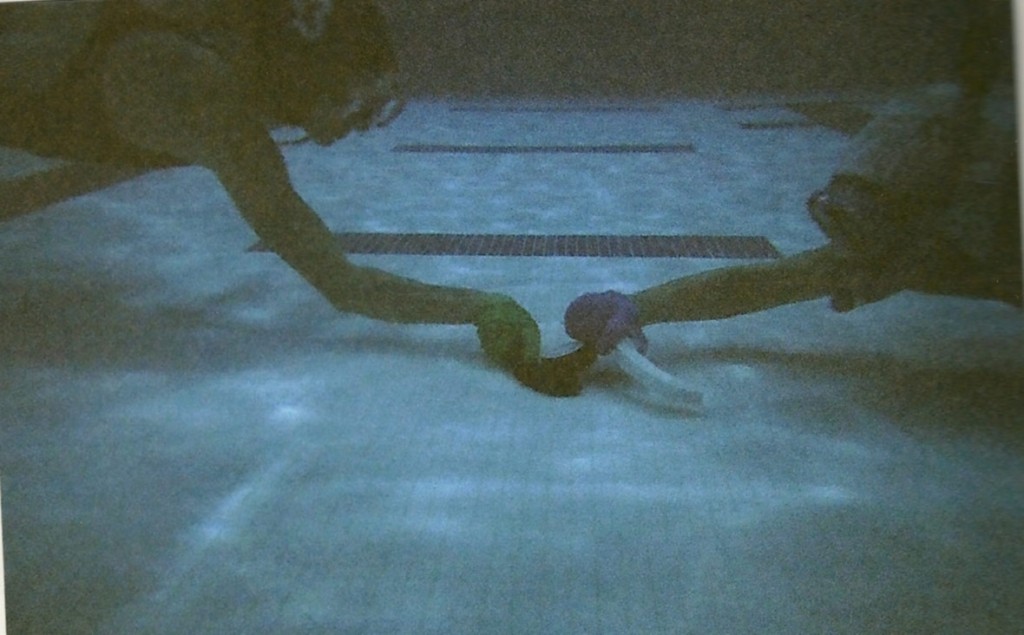Divorce What to Do With a House That s Underwater –
Post on: 24 Апрель, 2015 No Comment

October 12, 2011
Previously published on March 6, 2012
Since the article below was first published in October 2011, one Florida court has issued an opinion holding that any negative equity in the marital home should be distributed to the spouse retaining the home in the divorce in the equitable distribution of assets and liabilities. In an opinion filed on January 18, 2012, the Third District Court of Appeal stated in Byrne v. Byrne that the trial court erred in failing to add the [marital] condominiums negative value to the marital liabilities. The court reasoned that:
The trial court’s justification was not legally sufficient because it erroneously assumed that the negative value associated with the condominium would simply vanish if the parties were to abandon the residence or return the keys to the banks holding the indebtedness. It is well settled Florida law that, absent contractual agreement, debtors remain liable for the portion of their debt not satisfied in a foreclosure sale.
The Third District court also cited to Florida Statute 61.075(1) (2010), discussed below, which states that a court should begin with the premise that the distribution should be equal, unless there is a justification for an unequal distribution based on all relevant factors. Based on this statute, the appellate court rejected the trial courts conclusion that the equity factor of Section 61.075(1)(j), allowing the court to consider any other factors necessary to do equity and justice between the parties in fashioning a distribution of the marital assets and liabilities, required the court to disregard the negative equity, which the trial court based on its contention that most homeowners in the circumstances of the parties would simply abandon the residence and/or return the keys to the banks holding the indebtedness. Given that the Byrne case appears to be the only appellate case on point in Florida as of the date of this publication, it would seem that a court should not zero out the negative equity in a marital home during a distribution of assets and liabilities in a divorce, as some area trial courts had previously been proposing.
What happens when one spouse wants to keep the marital home in a divorce settlement, but the parties owe more on their mortgage than the home is worth? This is, unfortunately, a very common problem (often referred to as having an underwater mortgage or negative equity), as almost two million Floridians are in this situation.[1] This means that approximately 45% of the states total mortgages are currently underwater, while another 4.1% are closely approaching negative equity. It is also believed that Central Floridas negative equity rate is even higher than the state average, with 53% of mortgages currently underwater in the Orlando area.[2] Since approximately one-half of all Floridian homeowners are faced with this problem, the question of how to handle a home with negative equity in a divorce is frequently becoming an issue.
Florida law states that, unless circumstances warrant differently, spouses going through a divorce should each have an equitable distribution of the marital assets and liabilities, with a starting premise that the division should be equal.[3] In a divorce settlement where one spouse keeps the marital home, and the home has positive equity, the amount of equity in the home is counted towards that spouses portion of the property distribution. However, when a home is underwater and one spouse wants to keep it, lawyers and judges are struggling with the question of whether to allow that spouse to count the amount of negative equity toward their distribution of marital assets and liabilities. If this is permitted, that spouse will receive more of another asset in order to make up for the debt from the house that he or she is taking on, so that the overall property distribution is equalized. Certain Central Florida judges, however, have recently commented that, in a divorce case where the house has negative equity, the judge may decide to zero out the debt from the house, so that the spouse taking on the home will not receive the credit for the mortgage debt he or she is taking on. Of course, parties are also free to do this in out-of-court settlements, and may agree to zero out the mortgage or settle on some number between zero and the amount of the negative equity during settlement negotiations, depending on the specific circumstances of the case.
There are two main reasons behind the concept of zeroing out an underwater mortgage. The first main reason is that it is very possible that the home may be foreclosed or short sold in the future, and the spouse keeping the home may not, in reality, have to pay the entire deficiency amount. The other reason is that the value of the home will likely increase as the housing market recovers, so that the spouse keeping the home will realize that value at some point and will not be held to the entire deficiency amount existing at the time of the divorce. Thus, the spouse keeping the home would receive the benefit of taking on the mortgage debt in the divorce settlement, but may not actually have to pay all or some portion of the debt in reality, resulting in a potentially unfair property distribution.

While this zeroing argument may seem logical in many cases, especially those where it is foreseeable that a foreclosure or short sale will actually occur in the near future, or where the spouse intends to keep the house as a long-term investment and will likely realize an increase in value as the economy recovers, case law in Florida still says that all marital debts must be distributed. Florida law is clear that the first step in distributing a marital couples liabilities in a dissolution action requires the trial court to identify them. The second step requires the court to designate them as either marital or non-marital. The third step is to equitably distribute them. Another Florida court echoed in 2008 that it is reversible error for the trial court to fail to identify and distribute each marital asset and liability. Therefore, pursuant to this case law, it seems that a judge should account for the actual negative equity being taken on by one spouse, instead of zeroing out the debt altogether. Realistically, however, that might not be equitable in many cases. It seems as though Florida judges have begun zeroing out underwater mortgages in some divorce cases, and it is thus very possible that a Florida appellate court will either uphold or overturn a trial courts decision to zero out a home with negative equity in the near future. Until then, it is unclear how individual cases will be settled or decided. The law says one thing, but, given the current economic circumstances, fairness may often require another. Family law courts are courts of equity, and thus, the totality of the circumstances must be weighed.
[1] CoreLogic, Q2 2011 Negative Equity by State, corelogic.com. CoreLogic is a real estate data and analytics company based in Santa Ana, CA.
blogs.palmbeachpost.com/realtime/2011/09/13/nearly-2-million-flor.
[3] Florida Statute 61.075 (2011).














